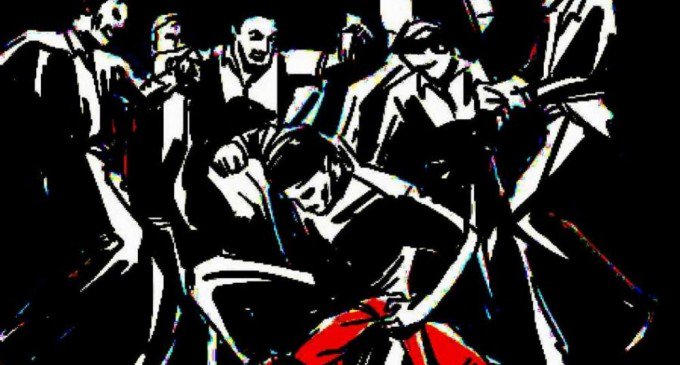
49 artists and intellectuals including filmmakers Adoor Gopalakrishnan, Shyam Benegal, Mani Ratnam, Anurag Kashyap, Aparna Sen, actor and filmmaker Revathy Asha, historians Sumit Sarkar and Tanika Sarkar, historian and writer Ramchandra Guha, filmmaker and actor Konkona Sensharma, actor Kani Kusruti and others had written a letter on July 24 to Prime Minister Narendra Modi expressing their concern over the lynching of muslims, dalits and other minorities, increasing religious identity based hate crimes and growing intolerance towards dissent in the country.
We the following artists, academics, theatre persons, writers and activists fully endorse the dissenting voice raised by our colleagues and express solidarity with their statement that expresses concern and alarm at the increasing violence being generated against the minorities and dalits within the nation’s politics.
Dear Prime Minister,
We, as peace loving and proud Indians, are deeply concerned about a number of tragic events that have been happening in recent times in our beloved country.
Our Constitution describes India as a secular socialist democratic republic where citizens of all religions, ethnicities & castes are equal. Hence, to ensure that every citizen enjoys the rights given to her/him by the constitution, our submission is:
1. The lynching of Muslims, Dalits and other minorities must be stopped immediately. We were shocked to learn from the NCRB (National Crime Records Bureau) reports that there have been no less than 840 instances of atrocities against Dalits in the year 2016, and a definite decline in the percentage of convictions.
Further, 254 religious identity-based hate crimes were reported between January 1, 2009, and October 29, 2018, where at least 91 persons were killed and 579 were injured (FactChecker.indatabase (October 30, 2018).The Citizen's Religious Hate-Crime Watch recorded that Muslims, (14% of India’s population) were the victims in 62% of cases, and Christians (2% of the population), in 14% of cases. About 90% of these attacks were reported after May 2014, when your government assumed power nationally.
You have criticised such lynchings in Parliament Mr. Prime Minister, but that is not enough! What action has actually been taken against the perpetrators? We strongly feel that such offences should be declared non-bailable, and that exemplary punishment should be meted out swiftly and surely. If life imprisonment without parole can be the sentence in cases of murder, why not for lynchings, which are even more heinous? No citizen should have to live in fear in his/her own country!
Regrettably "Jai Shri Ram" has become a provocative 'war-cry' today that leads to law and order problems, and many lynchings take place in its name. It is shocking that so much violence should be perpetrated in the name of religion! These are not the Middle Ages! The name of Ram is sacred to many in the majority community of India. As the highest Executive of this country, you must put a stop to the name of Ram being defiled in this manner.
2. There is no democracy without dissent. People should not be branded 'anti-national' or 'urban Naxal' and incarcerated because of dissent against the government. Article 19 of the Constitution of India protects freedom of speech and expression of which dissent is an integral part.
Criticising the ruling party does not imply criticising the nation. No ruling party is synonymous with the country where it is in power. It is only one of the political parties of that country. Hence anti-government stands cannot be equated with anti-national sentiments. An open environment where dissent is not crushed, only makes for a stronger nation.
We hope our suggestions will be taken in the spirit that they are meant – as Indians genuinely concerned with, and anxious about, the fate of our nation.
Vivan Sundaram (Artist)
Ashok Vajpeyi (Poet, Author)
Veer Munshi (Artist)
Nalini Malani (Artist)
Arpana caur (Artist)
N. Pushpamala (Artist)
Atul Dodiya (Artist)
Anju Dodiya (Artist)
Shakuntala Kulkarni (Artist)
Shireen Gandhy (Art Curator)
Riyas Komu (Artist)
Inder Salim (Artist)
Anil Sadgopal (Educationalist)
Navjot Altaf (Artist)
Kumar Shahani (Film Maker)
Virendra Saini (Cinematographer)
Prabhat Patnaik (Economist)
Utsa Patnaik (Economist)
M.K. Raina ( Theatre, Actor)
Irfan Habib (Historian)
Amiya Kumar Bagchi (Economist)
Sohail Hashmi (Historian, Author)
Madangopal Singh (Music, Scholar)
Ram Rahman (Phhotographer)
Zoya Hasan ( Political Scientist)
D. N. Jha (Historian)
C.P. Bhambri (Historian)
Jayati Ghosh (Economist)
C.P. Chandrasekhar (Economist)
Geeta Kapur (Art Historian, Author)
Saeed Mirza (Film Maker)
Anand Patwardhan (Film Maker)
Sashi Kumar (Media)
Aban Raza (Artist)
Abhilasha Kumari (Academic)
Aditya Mukherjee (Historian)
Ahmar Raza (Scientist)
Amar Farooqui (Historian)
Anil Bhatti (Academic, Author)
Kumkum Sangari (Academic)
Devika Daulet Singh ( Curator)
Jahar Kanungo (Film)
Rekha Awasthi (Writer)
Sania Hashmi (Film)
Rooprekha Verma (Ex-Vice Chancellor)
Dinesh Abrol (Scientist)
M.M.P. Singh (Writer)
Maya Krishna Rao (Theatre, Actor)
Mridula Mukherjee (Historian)
Parthiv Shah (Photographer)
Sukumar Murlidharan (Author)
Vasundhara Chauhan ( Activist Author)
Vishwamoan Jha (Historian)
Archana Prasad (Historian)
Arunkumar H.G. (Artist)
Atlury Murali (Historian)
Rimli Bhattacharya (Academic)
Saba Hasan (Artist)
Indira Chandrasekhar (Publisher)
Madhu Prasad (Academic)
Mithu Sen (Artist)
Nina Rao (Academic)
Shakti Kak (Academic)
Vertika Chaturvedi (Architect)
Arjun Dev (Historian)
K.M.Shrimali (Historian)
Lata Singh (Historian)
Nuzhat Kazmi (Art Historian)
Arun Kamal (Writer)
Om Thanvi (Editor, Writer)
Udayan Vajpeyi(Writer)
Dhruv Shukla (Writer)
Naresh Saxena (Writer)
Apoorvanand (Writer)
Manmohan (Writer)
Shubha (Writer)
P.K. Shukla (Historian)
Vikas Rawal (Economist)
Sumangala Damodaran (Historian)
Sudhir Chandra (Historian)
Sharmila Samant (Artist)
Suresh B.V (Artist)
Vasudha Thozhur (Artist)
Anita Dube (Artist)
Sheela Gowda (Artist)
Valay Singh (Author)
Arushi Vats (Writer)
Gopa Trivedi (Artist)
Shilpa Gupta (Artist)




